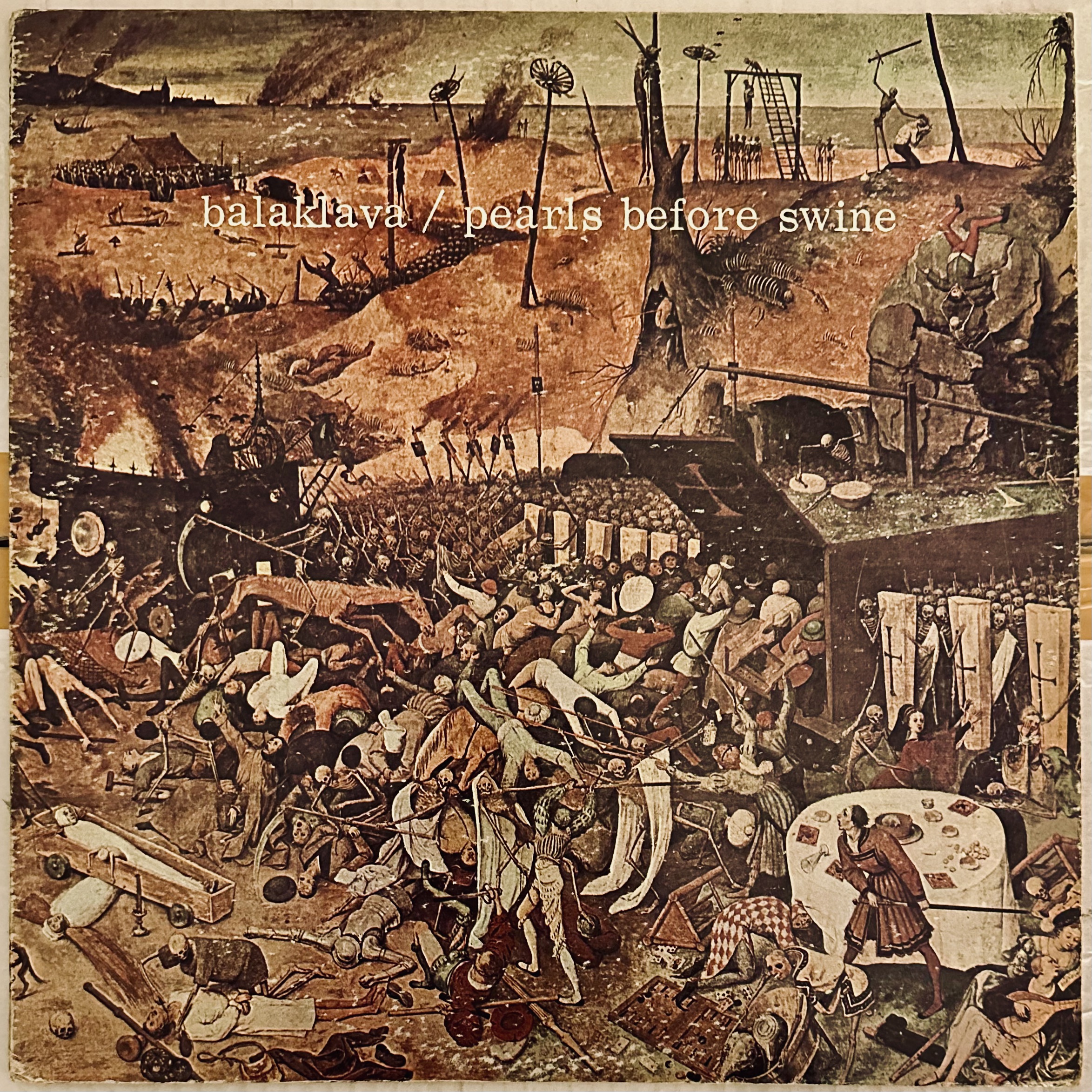Record basics
- Album name: Balaklava
- Group name: Pearls Before Swine
- Year: 1968
- Number of discs: one
- Label: ESP-Disk
- Collection: Brenner / Gessner
- Who owned it: my father
- Buy it on Amazon: $40.00

My review
Level of familiarity before listening
I don’t know that I’ve ever heard this Pearls Before Swine record before, but for some reason, I think that it was their most famous. It will be the fourth that I review from my father’s collection, and the previous three were:
- One Nation Underground (1967): 4/5
- These Things Too (1969): 2/5
- The Use of Ashes (1970): 4/5
What I expected
Psychedelic folk.
What it was actually like
Of all the records, from all the artists and bands, that I’ve reviewed since I started doing this last May, Pearls Before Swine stands out as having a really distinctive sound (while still fitting neatly into late 1960s / early 1970s music, even if I don’t know that any of their recordings would have gotten radio play). Though I’ve now only listened to each of their first four records a single time, I’m convinced that I would recognize any of their songs in any context. That’s how alike they sound to each other, and how different they sound from anything else.
I thought this record was all right – maybe better than These Things Too, but not as good as One Nation Underground. It definitely had some trippy songs, like Images of April, with lots of chirping birds and flute, which I thought was fine. Another with lots of sound effects was I Saw the World. Translucent Carriages was more in their wistful style, with whispering sound effects, guitar and vocals.
Then there were some more standard folk style songs, like There Was a Man, which did not really impress me. Their version of Suzanne was good, but Rapp definitely did not have Cohen’s voice, which I thought made all the backing instruments necessary, taking a lot away from the song.
A couple of the songs were quite disjointed and confusing: Ring Thing, which was basically gobbledygook, and Lepers and Roses, which had flute that I disliked a lot.
The album’s front cover was part of a Breughel painting, which was cool. The back cover, however, stated:
we wish to dedicate this album to pvt. edward d. slovik, u.s.army,deceased
They meant this guy: a career criminal who was drafted into the military against all reason, deserted, begged in writing to be punished, and then got executed. This sounds like some serious Dark Triad at work:
They’re not shooting me for deserting the United States Army… I used to steal things when I was a kid… They’re shooting me for the bread and chewing gum I stole when I was 12 years old.
Not very classy at all.
Grade
3/5: interesting, but not for me
[…] Balaklava (1968): 3/5 […]